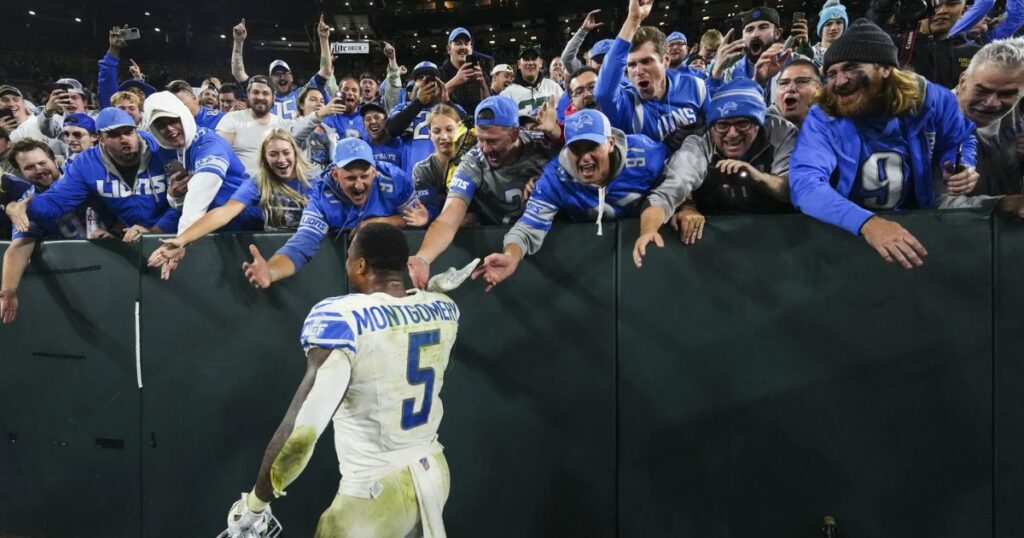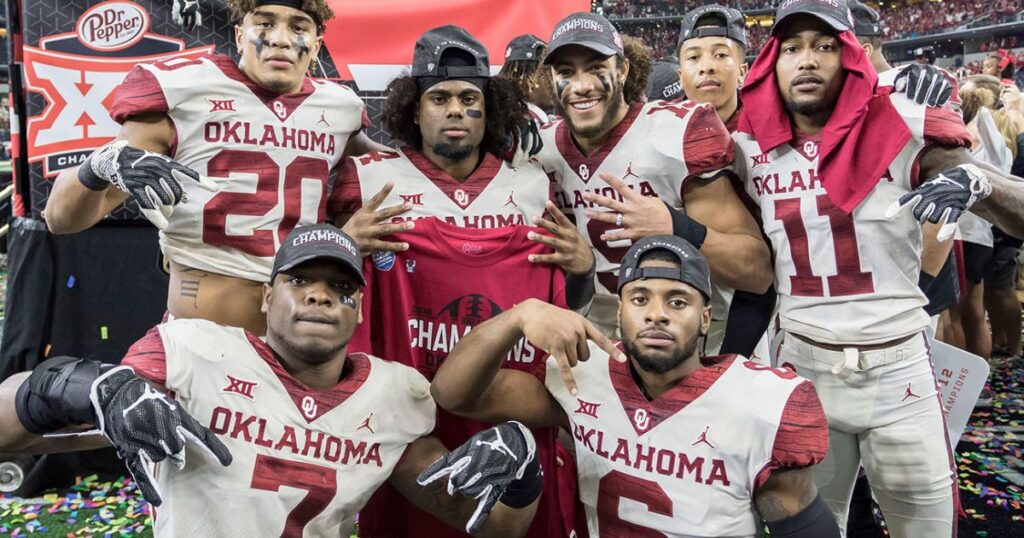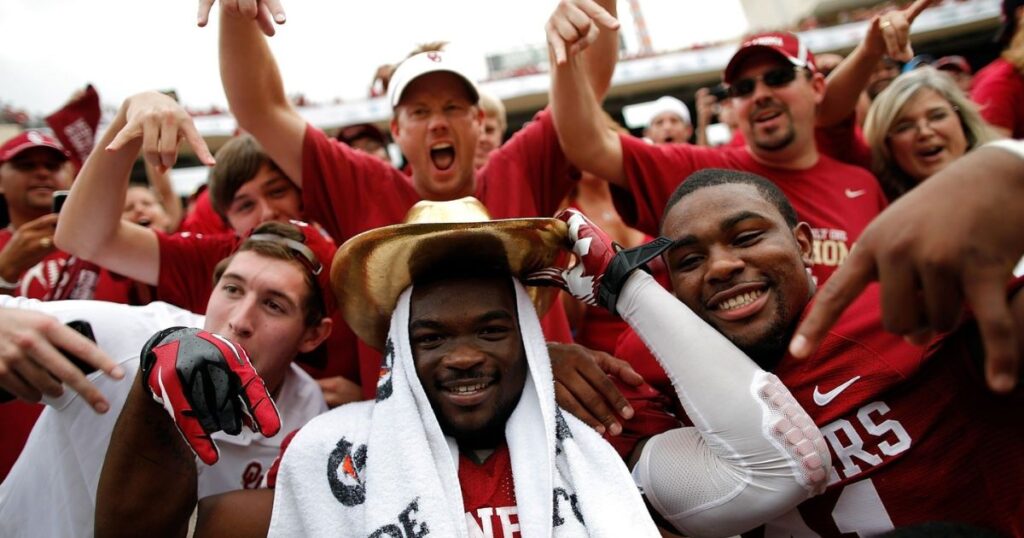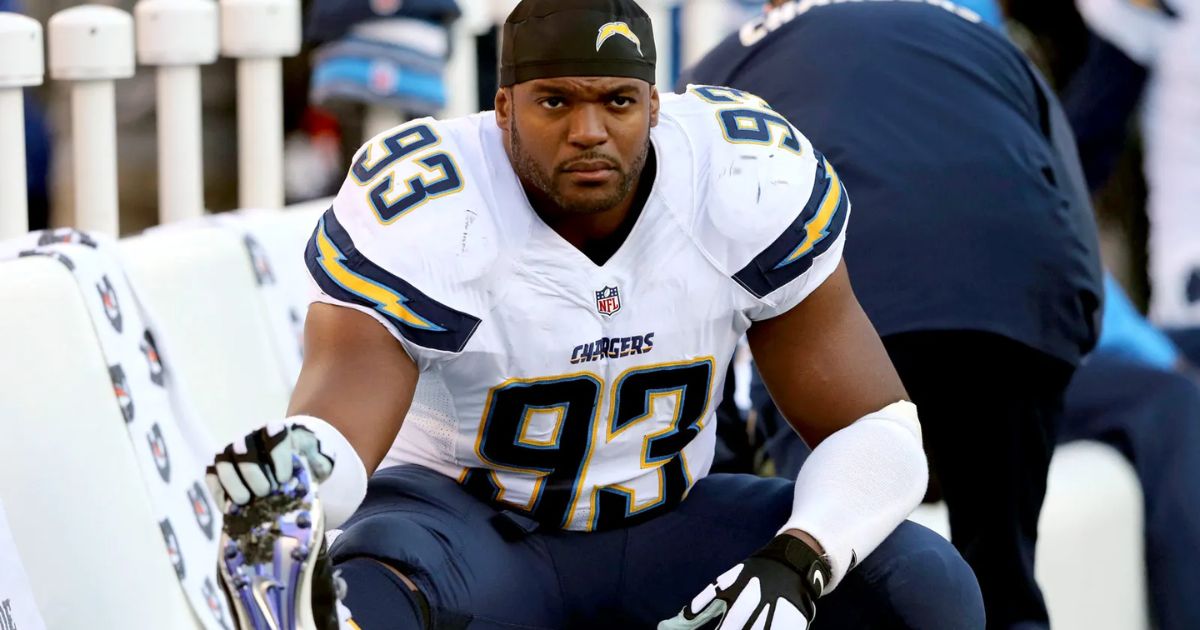In the heat of battle on the gridiron, emotions can run high and players look for any edge to gain a psychological advantage over their opponents. For devoted fans of the Texas Longhorns, few gestures incite more passionate responses than the infamous “Horns Down” hand signal. Despite being a seemingly innocuous hand gesture, the act of extending the index and pinky fingers downward has sparked controversy and backlash whenever used to mock the university’s beloved “Hook ‘Em Horns” tradition.
At its core, the “Horns Down” taps into the fierce pride and intense rivalries that fuel the fire of college sports. While some dismiss it as harmless gamesmanship, for the Longhorn faithful, it represents a disrespectful affront to the institution they hold dear. Let’s dive into the origins of this heated debate and explore why Texas fans care so much about the divisive hand signal.
The Origins and Meaning Behind “Horns Down”
The “Hook ‘Em Horns” hand gesture, with the index and pinky fingers extended to form a “horns” shape, is an iconic symbol deeply embedded in Longhorn culture. Adopted in 1955, it has become an instantly recognizable part of Texas tradition, proudly displayed by fans, athletes, and alumni alike.
As the popularity and notoriety of the “Hook ‘Em” grew, so too did its use by opposing teams and fanbases as a way to taunt and antagonize the Longhorns. The “Horns Down” emerged as the inverse counter-gesture, with detractors extending those same fingers downward in a mocking imitation.
While the intent was to get under the skin of Texas fans, the “Horns Down” took on a life of its own. Perhaps no incident exemplified its provocative power more than during the 2018 Big 12 Championship game. After scoring a touchdown against Texas, West Virginia players emphatically flashed the gesture, sparking outrage and leading to an on-field clash.
Why Texas Fans Take Such Offense

For those steeped in Longhorn culture, the “Hook ‘Em Horns” transcends being just a simple hand signal. It represents a deep sense of tradition, pride, and the very identity of the university itself. Given the program’s storied history and success across multiple sports, the fierce devotion of the fanbase should come as no surprise.
“That hand signal is something that really means a lot to all of us – the players, the coaches, to everyone at the University of Texas,” explained former Longhorns quarterback Colt McCoy. “It’s a unique thing that binds us all together as a family and a sense of pride.”
For rivals and opponents, the “Horns Down” provides a quick and potent way to agitate Texas by symbolically dismissing and mocking everything the iconic gesture stands for. As former Oklahoma State coach Mike Gundy put it: “That’s just piling on, and I’m not really a fan of that.”
The gesture also taps into the deep-seated animosity and competitiveness that exists between Texas and other major programs, particularly bitter SEC and Big 12 rivals like Oklahoma, Texas A&M, and others. In the pressure-cooker environment of high-stakes college sports, any perceived slight or insult only adds fuel to these heated rivalries.
The “Horns Down” as Psychological Warfare
Make no mistake, when players flash the “Horns Down” at Texas, it’s a calculated effort at psychological warfare – an attempt to get inside the heads of their opponents. By baiting them with the mocking gesture, the goal is to draw an emotional response or retaliation that could lead to penalties or a loss of composure.
“It’s definitely meant to be disrespectful and get under our skin,” admitted former Texas linebacker Emmanuel Acho. “It’s like someone coming into your home and putting their feet up on your couch.”
In 2018, the NCAA’s officials coordinator took notice of the increasing instances of the gesture being used as purposeful taunting. A directive was issued that officials could start calling unsportsmanlike conduct penalties on players making the “Horns Down” signal in an offensive manner.
The move reignited the debate around whether the NCAA had gone too far in over-regulating such displays of emotion and gamesmanship between teams. Supporters of the penalty argued it promoted respect and good sportsmanship, while critics felt it was an over-correction that lacked enforcement consistency.
In the current 2023 season, officials have seemingly taken a more hands-off approach in calling the penalty unless the “Horns Down” is directed explicitly and offensively at an opponent. The issue remains a confusing gray area with no unified consensus.
The Ongoing Debate and NCAA Involvement

The NCAA’s attempts in recent years to deem the “Horns Down” an unsportsmanlike conduct penalty have only fanned the flames of the controversy. On one side of the debate, you have those who feel regulating such a simple hand gesture is an overreach that lacks consistent enforcement and muddles the rules.
“The ‘Horns Down’ is just the way to respond to the ‘Horns Up’ symbol that was given start by the University of Texas,” argued West Virginia coach Neal Brown. “I don’t think it’s taunting or anything of that nature.”
On the other side are those who believe that any purposeful gesture meant to insult, taunt, or show disrespect to an opponent should be subject to punishment. Texas A&M coach Jimbo Fisher called it “straight disrespect” and suggested players who do it should face consequences.
The arguments on both sides raise valid points about drawing the line between what constitutes unsportsmanlike behavior versus heated emotions and gamesmanship. One perspective is that rivalries and college sports thrive on these symbolic back-and-forths that tap into regional pride and identity. The other view is that certain lines shouldn’t be crossed in the name of respect and promoting a positive example for young athletes.
Ultimately, despite efforts to legislate against it, the divisive hand signal debate rages on with no clear resolution in sight.
Insight from Longhorns Fans and Alumni
To truly understand the magnitude of why the “Horns Down” triggers such visceral reactions, it’s important to hear directly from the devoted Texas fans and alumni who hold the tradition close to their hearts:
Angie Demonstranti, Class of 1997: “That hand signal is such an iconic part of being a Longhorn. It represents all the history, the championships, the blood, sweat, and tears players put into our program. Seeing outsiders mock it feels like someone is insulting and disrespecting our family.”
Jacob Hendricks, Lifelong Fan: “I get that other teams are trying to get under our skin, but the ‘Horns Down’ just comes across as immature and disrespectful. If you can’t win with more class, that’s on you. Don’t try to tear down our traditions to make yourself feel better.”
Rashad Wilkins, Former Linebacker: “I’ll never forget playing Oklahoma my senior year and their fans flashing that stupid gesture after we scored. It still makes my blood boil thinking about it. All that hard work and sacrifice, just for some punks to trivialize it with that mocking BS.”
Whether seen as overblown fragility or an understandable defense of dearly-held school spirit, the perspectives reinforce the deep meaning the iconic hand signal holds. For a program with such a venerated legacy, any perceived trivialization feels like a slap in the face to Texas’ faithful.
| Case Study: The TCU Controversy |
| Few incidents better encapsulated the heated debate than the fallout from a 2022 game between Texas and TCU. After scoring the game-winning field goal, several TCU players emphatically fired off the “Horns Down” in the direction of Longhorns players and fans. Texas coach Steve Sarkisian called it “disrespectful” and many felt it crossed an unwritten line of poor sportsmanship. In the aftermath, both teams and the Big 12 were embroiled in a controversy around proper disciplinary actions – a microcosm of the larger disagreement around regulating such gestures. |
The Double Standard Argument

A critique often levied against Texas’ stance is that the “Hook ‘Em Horns” itself could be viewed as an offensive gesture by some, especially given its origins. The raised index and pinky fingers resemble cattle horns, which some have associated with mockery of Native American culture and values.
Critics claim there is a double standard in Texas fans being ultra-protective of their hand signal while dismissing any concerns from those who may find the “Hook ‘Em” itself to be disrespectful cultural appropriation. This angle argues that if one gesture is to be legislated against, perhaps all potentially offensive signals should be re-evaluated.
However, Texas fans and the University counter that the intended meaning behind the “Hook ‘Em” is one of putting positive spirit and identity behind the signature hand sign. Any parallels to Native symbolism were not meant to be denigrating, but rather paying homage to the region’s heritage.
The debate speaks to the subjective nature of taking offense to gestures and symbols based on one’s background and cultural perspective. It’s a layer of nuance that makes uniformly regulating such controversies a very arduous task.
Corporate Sponsors Wading Into the Fray
With so much money and brand exposure tied to major college athletics, large corporate sponsors and advertisers have also found themselves incidentally drawn into the “Horns Down” controversy based on which side they take.
In 2019, images surfaced of a new Volkswagen advertisement showing a model driver flashing the “Horns Down” hand signal out of his car window. Given the heated symbolism, it drew the ire of Texas fans who saw it as Volkswagen taking a direct swipe at the university.
The company stated it was an unintentional oversight that slipped through the approval process, and the ads were pulled. But it showed how something as seemingly trivial as a hand gesture in an ad could be viewed by Longhorn faithful as an attack on the university’s values worth pushing back against.
On the flip side, other brands have seemingly embraced the controversy for attention. Several years ago, TexAgs, a popular online Aggie community, sold “Horns Down” t-shirts designed to taunt Texas fans. While just meant as jeering between rivals, it speaks to how lucrative alimenting the debate can be from a business marketing standpoint.
For brands, there’s a delicate balance between tapping into the passion around college sports and crossing a line into offending a massive, devoted fanbase like Texas’. The “Horns Down” saga shows how quickly that line can become blurred.
The Slippery Slope Conundrum

One of the main arguments from those opposed to over-legislating the “Horns Down” is the potential for a slippery slope that could lead to an endless cycle of banning gestures, celebrations, or other emotional displays core to the spectacle of sports.
If you start strictly prohibiting the “Horns Down” under blanket taunting/disrespect rules, then what stops officials from expanding that to other hand signals, dances, chants, jersey gestures, and more? Critics argue it could strip away the fundamental emotion and human elements that add to sports’ drama and appeal.
Texas A&M head coach Jimbo Fisher summed up this perspective: “If you’re going to do stuff like that, you won’t be able to celebrate anything. The excessive stuff, OK. The little chin-ups and hand symbols? We might as well go join a tantric yoga class if we’re going to be that way.”
It’s a philosophical debate with valid arguments on both sides. Proponents of regulation contend you have to draw firm lines to uphold basic standards of sportsmanship, even with subjective forms of expression. But the opposing view is it’s a gateway towards stricter, unrealistic policies that professional and college sports have managed just fine without.
As one of the most polarizing symbolic gestures in college athletics, the “Horns Down” controversy encapsulates this slippery slope conundrum in a singular example. How it continues being legislated could foretell a broader trend of increased restrictions or upholding emotion’s place in sports spectacles.
Conclusion
At the end of the day, the debate around the “Horns Down” cuts to the heart of the fierce pride, intense rivalries, and protective mentality that make college sports, especially college football, such an impassioned spectacle. For Texas fans, it represents the latest battlefield where the identity and dignity of their beloved program is constantly being challenged.
While the NCAA continues grappling with how to legislate against such provocative gestures, the controversy shows no signs of abating. The issue begs the question: Should rivalries wholeheartedly embrace these heated symbolic exchanges, or should steps be taken to promote greater sportsmanship.
Also Read this Blog:

Welcom to https://birdsaboutinfo.com. Our content is for general information purposes. While we aim for accuracy, use it at your own risk. Seek professional advice for specific concerns. We’re not responsible for external links or the outcome of using our information. Some content may contain affiliate links. We may update this Disclaimer.











